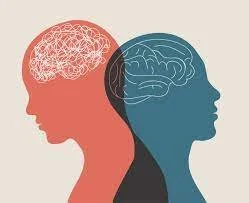Imagine yourself at a crowded bus stop, waiting patiently for your ride. A bus arrives and as the passengers alight from the bus, you see a familiar face that you haven't seen in a very long time. You suddenly find yourself gripped by immense joy and nostalgia. After all, it is your childhood buddy!
However, the same sight doesn't seem to evoke any emotions in your fellow passengers. Why?
The explanation lies in the way you interpreted the situation.
Appraisal theories of emotions argue that the emotions one feels depend on how one interprets the situation.
Basic emotions theory posits that the elicitation of a specific emotional episode is based on a strict set of antecedents, which are universal and innate. Basic emotions include fear, happiness, sadness, disgust, surprise, and anger. These theories rely on finding distinctive universal signals (facial expressions), presence in other primates, distinctive physiology, and coherence among emotional responses, to support their theory.
However, meta-analyses and reviews suggest that the evidence for distinctive physiology for each of the basic emotions is weak or non-existent. Further, recent cross-cultural studies did not find support for the universality of basic emotion-specific expressions. Moreover, this approach risks increasing the size of lists containing different antecedents and criteria for a strict set of basic emotions, leading to decreased explanatory and predictive power of the theory.
To explain these shortcomings, appraisal theories reject the notion of a strict set of emotions along with their fixed antecedents. They argue that an emotional experience/episode is determined by how a situation is appraised along different dimensions such as novelty, goal relevance, and agency. For example, you may experience anger and fight the aggressor if you think you can successfully neutralize them, but may experience fear and run away if you think otherwise.
The upshot is that these theories can accommodate inter-individual and cross-cultural differences in the elicitation of emotions to specific situations.
Paralleling the above theme in emotion research, a similar theme is found in the domain of drug abuse/use. Researchers have long tried to find out a set of personality traits that predispose a person to drug abuse/use. However, this approach fails to explain the presence of drug users who do not have traits considered to cause that behavior and also fails to explain why the same person can use the drug at one point and yet be unable to use the drug at a future point in time. However, to overcome this gap, American sociologist Howard S. Becker took a different approach that resembles the appraisal theoretic approach to understanding emotions. To better understand when and how a person uses marijuana for pleasure, Becker argued that rather than looking for traits that antedate marijuana use, it is important to look at how the conceptions and perceptions about marijuana change as one begins using it.
Based on interviews with 50 marijuana users, Becker outlined 3 stages of progression through which a novice passes in order for him to continue using marijuana for pleasure.
The first two stages involve the proper way of smoking marijuana for the drug to have real effects on the physiology followed by identification and appreciation of the changes in one’s physiology caused by drug delivery. It is the third stage that is crucial in determining whether usage of marijuana leads to a pleasant “high” or an unpleasant “bad trip”.
Marijuana usage produces dizziness, thirst, and perceptual distortions which are not inherently pleasant. Perceiving the effects of marijuana as pleasant requires appraising them in a positive light, much like the acquired taste of alcohol. Becker shows that a novice generally uses marijuana for the first time in the company of “experts”, and it is these “experts” that teach the novice to appraise the sensations caused by marijuana as pleasant by providing feedback.
Apparently, the only difference between a “bad trip” and a pleasant “high” is the company that one keeps!
Howard S. Becker’s work shows that even the effect of drugs can vary based on one's appraisal and expectations.
Perhaps this is the reason why we have the Placebo effect.
To conclude, it is interesting to see how a common theoretical framework is used to explain and understand two different phenomena, emotions and drug use, in two separate disciplines, psychology and sociology.
Howard.S. Becker never used the term “appraisal theory” explicitly in his work, but his approach is similar to theirs. Thus it becomes important to indulge in cross-disciplinary research so that we can unify separate findings based on a common theoretical approach, and try not to justify Ernest Rutherford’s quip: “All science is either physics or stamp collecting”.
Ansh Bharadwaj


